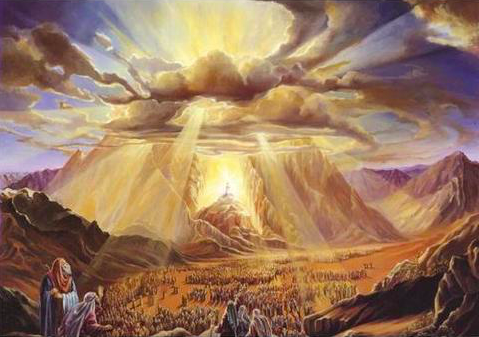Thoughts on parashat Ki Tisa.
Today people lament over the crisis of political and religious leadership. I gripe and grumble along with the best of them, notwithstanding, this “crisis” is nothing new and is quite possibly inherent to human societies. While we must tip our hat to our preeminent leaders that inspire and galvanize, I would suggest bad leadership is the norm. As a musician, I would say good leaders are as rare as good musicians – VERY rare. Not surprising, most musicians think they are “special,” but in the field of music the ordinary are weeded out through competition and capitalism – if the public doesn’t listen they don’t make money and they quit (sometimes still believing they are exceptional but just couldn’t “catch a break.”) Unfortunately this isn’t the case with leaders, especially politicians, who once in power – rarely quit, even when they are wildly unpopular and know they are wildly unpopular! Yes, often in power by popular vote, we all know (and they know) the choice was between the worst of two evils.
Moses was an exceptional leader in our history and in all of history. His leadership was not only religious, but political. His charge was the resettlement of an entire nation – an undertaking quite unique and unprecedented in the world’s history! What is more political than that? His stewardship is demonstrated many times… a prime example is immediately after the incident with the golden calf, which brought God’s enormous wrath upon the Israelites, when Moses first intercedes for the Israelites:
Moses implored the LORD his God, saying, “Let not Your anger, O Lord, blaze forth against Your people, whom You delivered from the land of Egypt with great power and with a mighty hand. Let not the Egyptians say, ‘It was with evil intent that He delivered them, only to kill them off in the mountains and annihilate them from the face of the earth.’ Turn from Your blazing anger, and renounce the plan to punish Your people […] Remember Your servants, Abraham, Isaac, and Israel, how You swore to them by Your Self and said to them: I will make your offspring as numerous as the stars of heaven, and I will give to your offspring this whole land of which I spoke, to possess forever.” And the LORD renounced the punishment He had planned to bring upon His people. (Ex 32:11-14)
The Hebrew word yinachem, used in the last verse (Ex 32:14) and translated as (he) renounced, literally means to regret, to repent or to be sorry. This illustrates Moses’ will and his commitment to his people: he literally made God ‘feel sorry’ about His decision. But he does not stop at staving off the Divine wrath. After fixing the matter ‘on the ground’ i.e. destroying the Golden Calf and ordering the death penalty for anyone who has directly defied God (3000 Israelites), he puts it all on the line with God (kinda threatening him!?):
Now, if You will forgive their sin [well and good]; but if not, erase me from the record which You have written!” (Ex 32:32)
Colloquially speaking, Moses says: forgive them or I quit my job. In response, God assures Moses that he will not apply collective responsibility for what happened, but instead will judge each Israelite according to their merits and offenses. (Ex 32:33-34) Hearing this, however, Moses, goes further (the chutzpah!) and demands that the covenant with the Israelites be fully repaired and that it remains intact. He does it in a quite sublime and personal way:
Moses said to the LORD, “See, You say to me, ‘Lead this people forward,’ but You have not made known to me whom You will send with me. Further, You have said, ‘I have singled you out by name, and you have, indeed, gained My favor.’ Now, if I have truly gained Your favor, pray let me know Your ways, that I may know You and continue in Your favor. Consider, too, that this nation is Your people.” (Ex 33:12-13)
Knowing the faults and offences of his people, Moses does not complain about them before God. In fact, Moses shifts a great deal of responsibility to God for what the Israelites have done, as well as blaming God for not warning him about the people they are dealing with. Through all of this, Moses uses all his leadership skills to renew the covenant. He takes responsibility for the Israelities, even after they turned out to be a great disappointment and at the moment does not particularly empathize with them.
Let us now look at our social and political leaders, as well as at the relationships and hierarchies within our families, Jewish communities and businesses. As our example, let us judge how the people endowed with responsibility “stand up for their own people” in front of their superiors, compared to Moses. While in tight Jewish communities that are close to the Torah, we will definitely find attitudes of complete support and engagement among the heads of families, I am afraid that the general condition has few such examples. I definitely do not think that we would have anything to boast about before our grandparents or great-grandparents. But we most certainly lack political leaders standing firmly behind their constituents and the interests of their constituents even less so when they are at odds with their own private likes and dislikes. Thus, let Moses be our constant and shining example, especially if you find yourself in a leadership position, because attitudes like the one of Moses make real differences and bring real improvements in small and profound ways.
Shabbat shalom!

